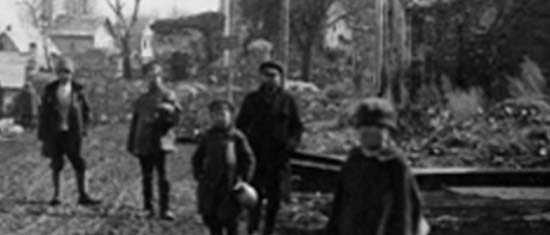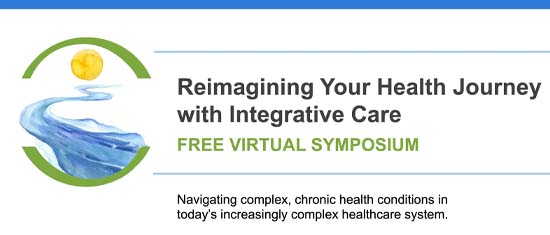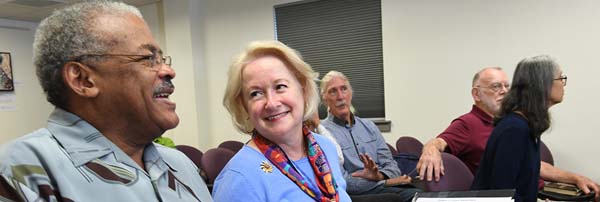|
The nonsense of belonging

There’s a new sheriff in town, and she’s an “otrovert”. I forgive you if you haven’t heard of this newly coined term for someone who isn’t exactly an introvert and not quite an extrovert. Up until reading about otroverts, I thought of myself as a tried-and-true introvert. The Myers-Briggs tests we are all forced to take declared me to be an introvert. For the most part, I thought it rang true, at least more so than “extrovert” ever did. I have my extroverted moments, oh sure, but they require a good nap afterwards. In a book released over the summer, The Gift of Not Belonging, the author, Rami Kaminski, M.D., explores this new personality type. One of the traits of an otrovert is never having the sense of truly fitting in. Even in the most comfortable surroundings, with the warmest, most accepting people, I have always felt a bit like a fish out of water. Otrovert! On the other hand, I strive to make others feel like they belong, whether it’s at my home, at an Osher gathering, or at a party that I’m not even hosting. Also, otrovert! I'm not one for groupthink. Otrovert! And, like Groucho Marx, I wouldn’t want to join a club that would have me as a member. Also, otrovert! I took a quiz to find out if I am, indeed, an otrovert. According to the results, I am, and not just a little bit. In true otrovert fashion, though, I don’t fit into all the general otrovert traits. I'm totally fine with that, which of course makes me an otrovert. The otrovert is a new phenomenon in how we think about belonging and individuality. Fortunately, the author of the aforementioned book has established what he calls the “otherness movement,” where those “non-belongers” can learn, connect, and share their experiences—but the meetings must be awkward. Whether you are an introvert, an extrovert, an otrovert, or some other not-yet-discovered type of vert, I hope you feel a sense of belonging at Osher.
Stay safe and healthy,

Tracy Jacobs
| |

Towson University History Department presents
Vigilante Violence: Popular and State Antisemitism in Russia’s Great War
Monday, October 20, 5–6:15 p.m.
Towson University, Liberal Arts Building, Room 4110
Open to all, Refreshments will be served
“Vigilante Violence” examines the varieties of violence perpetrated against the Jewish population of the Russian Empire during WWI. The years 1914-1915 marked a radical escalation of anti-Jewish persecution at both state and popular levels, involving mass deportations, pogroms, and theft. The presentation also considers the dynamics underlying much of this violence, which had a long and lethal afterlife during subsequent wars in the borderlands of Eastern Europe. "Vigilante Violence" explores the nature of this violence, and asks who carried it out, and why? And how do the events of World War I fit into broader patterns of antisemitism throughout Jewish history?
Dr. Zavadivker is associate professor of History, and director of the Program in Jewish Studies at the University of Delaware. Dr. Zavadivker is a widely recognized expert on Russian and Ukrainian Jewish history. Her recent book A Nation of Refugees: Russia’s Jews in World War I (Oxford, 2024) won the W. Bruce Lincoln Book Prize awarded by the Association of Slavic, East European, and Eurasian Studies, and was a National Jewish Book Award Finalist.
Visit this link for directions and parking information.
| |

Come see Osher at the Power of Age Expo
Monday, October 29, 9 a.m.–6 p.m.
MD State Fairgrounds, Timonium
Osher at Towson University is excited to be participating as an exhibitor in Baltimore County Department of Aging’s Power of Age Expo. Please stop by Booth 264 to say hello!
For more information about the Power of Age Expo, visit powerofageexpo.com.
| |

Created by a member of the Osher Lifelong Learning Institute at the University of North Caroline in Asheville, Paul Wilczynski, TheSeniorTechie newsletter focuses on making technology simpler, safer, and more enjoyable for seniors. The newsletter is a free, friendly resource featuring simple articles about technology. Each week, Paul publishes easy-to-follow guides for using phones, tablets, and everyday gadgets, along with clear explanations of new apps, tools, and products of special interest to seniors—all without the jargon.
A few recent articles include:
- The Most Important iPhone Health App Readings for Seniors
- Staying Informed, Staying Well: A Senior’s Guide to Balanced News Consumption
- Keeping Your Mind Sharp: Brain Health as We Age and How the BrainHealth Project Can Help
It’s all about making technology easier, stress-free, and even fun.
| |
| |

Join the Osher Centers for Integrative Health
Reimagining Your Health Journey with Integrative Care
Friday, October 24, 11 a.m.–5 p.m.
The Osher Collaborative for Integrative Health invites you to a free virtual symposium exploring how an integrative health approach can address common questions that arise in both complex, chronic health conditions and today’s increasingly complex healthcare system.
We will share interdisciplinary presentations that highlight a variety of perspectives and the importance of a team-based approach to care. Through acknowledging and validating the personal and systemic realities of chronic health conditions, as well as sharing pathways through these experiences, we hope that participants can reimagine their health and healing journey through integrative care.
The full-day program will cover the following four topic areas:
- Lifestyle (Movement, Nutrition, Sleep Medicine)
- Mind-Body Medicine (Mindfulness, Yoga, Therapeutic Breathing/Hypnosis)
- Connection and Environment (Narrative Medicine, Spirituality, Nature/Planetary Health)
- Professional Care (Acupuncture, Manual Therapy, Music Therapy)
Note: If you are unable to attend the live event or can only attend a portion of the event, you are still encouraged to register so you can be alerted when recordings are available.
| |

Grow It. Protect It. Pass It On.
Daily live webinars, October 20–24, 12–1 p.m. ET
Free for students, alumni, parents, faculty, and staff across the University System of Maryland.
Estate planning is more than a will. From getting an early start on your financial plan (hello, compounding!) to naming someone you trust for health care and financial decisions—plus ways to create a legacy for the people and causes you care about—this free series during National Estate Planning Awareness Week covers the essentials and beyond. (Reminder: if you don’t make your own arrangements, the courts and state will decide for you.)
Across five hour-long sessions, our experts will help you see the full picture:
- Build and protect wealth—and why starting early lets the power of compounding work for you
- Plan beyond wills and trusts
- Empower trusted helpers (financial power of attorney, health care proxy, advance directive, HIPAA releases)
- Navigate special family situations
- Define your vision for intergenerational wealth
- Include the charities that matter most to you
- Choose—or serve as—an estate representative
Who can attend? Anyone with a connection to the 12 institutions that make up the University System of Maryland. Can’t join live? Sign up anyway—we’ll send the recordings to everyone who registers so you can watch anytime.
| |

If you would like to honor a friend or loved one with a donation in their memory, please consider supporting Osher at Towson University with a gift to the Osher Excellence Fund.
| |
|